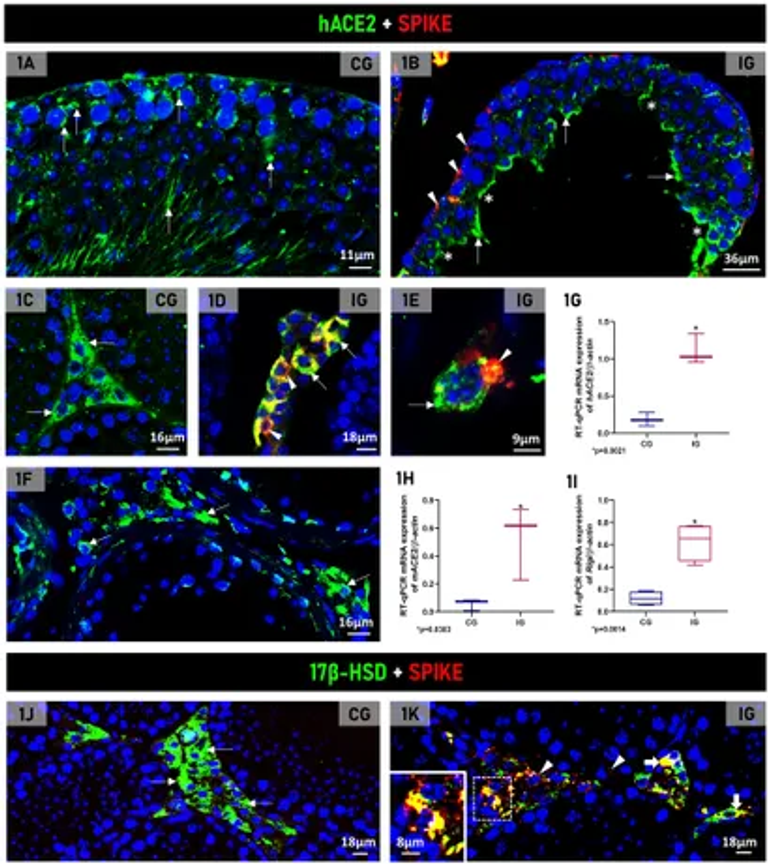Background: During COVID-19 pandemic, men had reduced serum testosterone and higher mortality rate than women. Variations in high density lipoprotein (HDL) levels were detected in severe COVID-19 individuals. We evaluated the response of testicular macrophages, steroidogenic activity and lipid metabolism of Leydig cells in SARS-CoV-2-infected K18-hACE2 mice.
Methods: Testes were analyzed under light and electron microscope. Immunolocalization of human angiotensin converting enzyme (hACE2) and viral proteins (spike and nucleocapsid) were evaluated in association with the expression of viral recognition receptor, Rigi. Steroidogenesis was evaluated by the expression of steroidogenic factor-1 (Sf1), and the immunolocalization of steroidogenic proteins and testosterone. Pro-inflammatory (TNF-α, IL-1β, IL-6), anti-inflammatory (IL-10) cytokines, macrophages (CD68 and CD163) and macrophage inhibitory factor (MIF) were detected by immunolocalization and Western blot. The expression of lipid metabolism genes (Srebp, Dgat1 and Scarb1) were investigated by RT-qPCR.
Results: In the infected animals, the Leydig cells showed enhanced immunolocalization of hACE2, spike and nucleocapsid. The expression of Rigi, pro-inflammatory cytokines and number of macrophages increased, confirming viral infection. Sf1 expression, steroidogenic proteins and testosterone were reduced whereas the expression of Dgat1, Srebp and Scarb1 increased. Lipid droplets-enriched Leydig cells and viral particles in lipids were observed. The infected Leydig cells also showed enhanced pro-inflammatory cytokines immunolabeling.
Conclusion: SARS-CoV-2 infects Leydig cells, activates its immune response and impairs steroidogenesis. The virus uses the steroidogenic machinery and induces lipid metabolism pathways for its survival and replication in these cells. These findings support the low testosterone and HDL levels in men with severe COVID-19.
